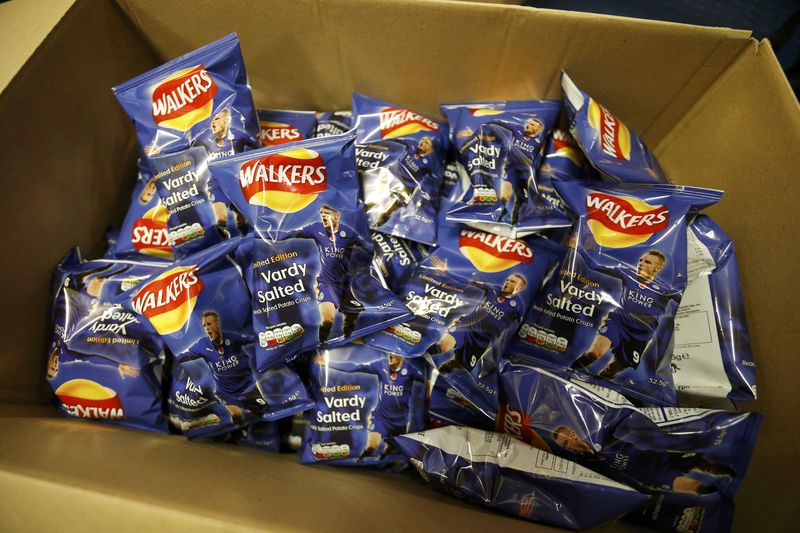LONDON (Reuters) - A bag of Britain's biggest-selling potato chips is set to rise by 10 percent after maker Walkers said the slump in the value of the pound after the vote to leave the European Union had pushed up its manufacturing costs.
Shoppers could also pay more for fish fingers, a staple children's meal, as Birds Eye joined a growing number of manufacturers of products ranging from tea bags to ice cream hiking prices because of Brexit.
The price of a standard bag of salt and vinegar or cheese and onion flavour crisps, as they are known in Britain, will typically increase to 55 pence ($0.62) from 50 pence after the move by Walkers, which is owned by U.S. group PepsiCo (NYSE:PEP).
"Like most businesses, we are facing factors which impact the cost of some of our ingredients and materials including fluctuating foreign exchange rates," a company spokesman said.
"In light of this we are taking steps to cover some of these additional costs through selective cost price changes across our portfolio."
The potatoes used to make crisps for Walkers, which is Britain's third-biggest grocery brand according to trade publication The Grocer, are grown in Britain. But other ingredients, such as frying oil and seasoning, and packaging were imported, Walkers said.
Economists believe that sterling's slump since the June vote - it is down about 19 percent against the dollar and 16 percent against the euro - will lead to higher prices despite fierce competition between supermarkets.
Inflation could rise to 3 percent or higher within a year, economists have said.
Unilever (LON:ULVR) was the first to move with an attempt to impose 10 percent rises on a host of big brands like savoury spread Marmite, Pot Noodle and Magnum ice cream last month, triggering a dispute with supermarket group Tesco (LON:TSCO).
Birds Eye, which is owned by Nomad Foods, said many of its raw products were priced in dollars, and its costs in sterling had risen since the referendum, making it necessary to raise prices for the first time since 2012.
"Whilst we are absorbing a significant proportion of the raw material inflation ourselves, the level of increases mean that we may see in the region of a five per cent average cost increase," Birds Eye UK and Ireland Managing Director Wayne Hudson said.

Walkers said that since it did not set the retail price of its products, it would be up to individual retailers to determine the price on the shelf.